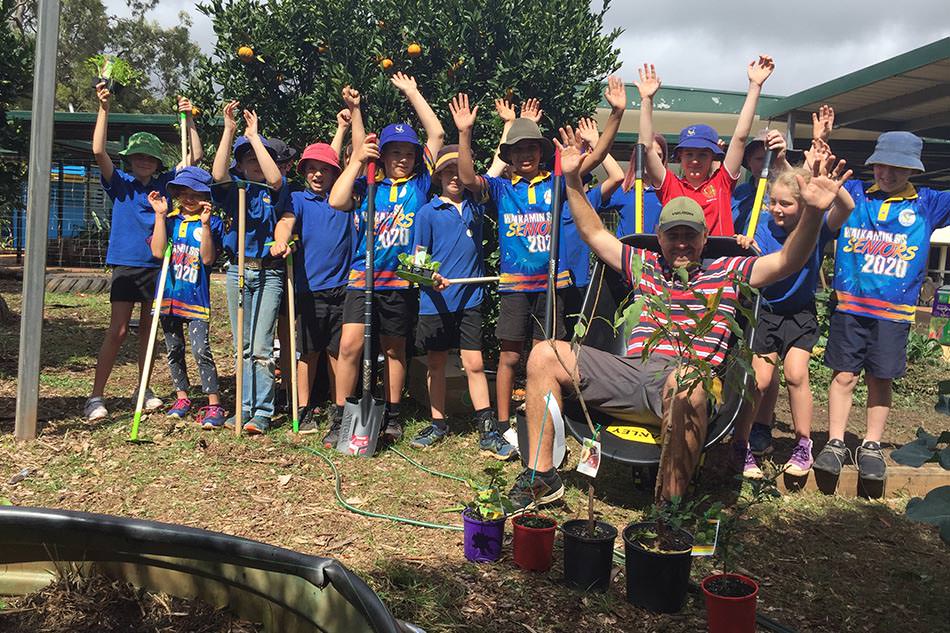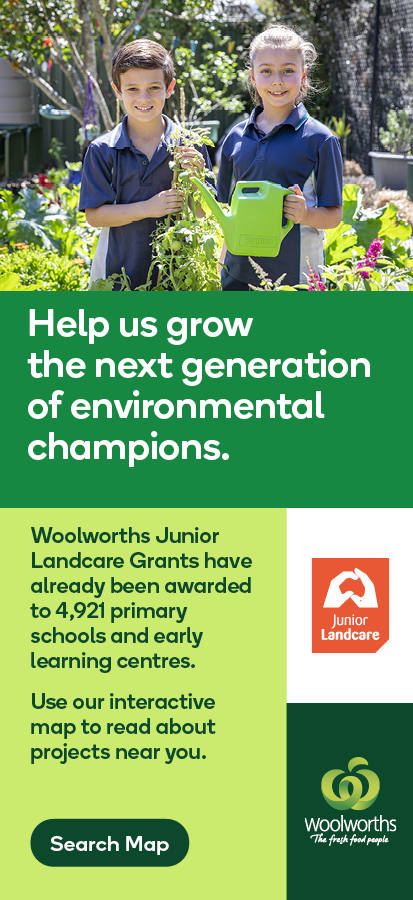CASE STUDY

Age Groups: 7-13
Grant Name:
School: Walkamin State School (QLD)
Grant Sponsor: Woolworths
Project Overview:
Walkamin State School located in Queensland’s Tablelands Region, wanted to add a worm farm to extend their sustainable waste management system. So, this small school was thrilled when they were successful in obtaining a Woolworths Junior Landcare Grant for their Wriggly Way to Sustainability project.
The project was an excellent vehicle for teaching students how to recycle food scraps and turn them into fertiliser for the school gardens.
Students were fascinated to see and touch so many different worms when placing them in the worm farm. Learning how to look after the worms and what to feed them, as well as how to make worm juice and worm castings, were an added bonus.
Environmental Outcomes:
By incorporating the worm farm into the existing gardens and composting system the school was able reduce its food waste whilst substantially improving the garden’s soil quality. The plants are really healthy and growing at a robust rate. Students now munch on the fresh garden produce like cherry tomatoes, beans, strawberries and oranges during each lunch break.
The thriving garden has also managed to attract bees who seem to be loving the basil and pak choy flowers in particular.
Educational Outcomes:
The garden has been a fantastic learning platform for all our students with them learning about sustainable practices thorough health, science and maths units. The worm farm enables students to share and reflect on observations about the needs of living things and how the environment can affect them.
Students also gather and display data about the rate of decomposition while learning more about sustainability in at school.
Health outcomes are being met through the cooking program, using produce from the garden and turning it into healthy and delicious dishes that are being regularly eaten by students. This has also resulted in students helping themselves to fresh fruit and vegetables from the gardens to add to their school lunches.
Conclusion:
The teacher most involved in the project says, “It has been great to see our students involved in learning about sustainable, healthy eating options with food directly picked from our garden. Showing students how to reduce our school's waste through composting, worm farming and growing food has been an added bonus."
“A few of our staff have been inspired by the simplicity of worm farming and the fantastic results obtained from using worm juice and worm casting as organic fertiliser. Some staff are looking at purchasing a worm farm for their own backyards.”
 Teachers & Educators
Teachers & Educators Youth or Community Groups
Youth or Community Groups